“Give Us Strength According to Our Faith . . . in Christ”
Alma 13–16
LDS manual: here
Purpose
To show that God is unjust, and allows unnecessary suffering.
Reading
CONTENT WARNING: rape, murder
Is Alma still talking to Zeezrom? Poor guy must be getting bored by now. After all, you can’t spell Zeezrom without ‘Zz’.
Alma 13:1 And again, my brethren, I would cite your minds forward to the time when the Lord God gave these commandments unto his children; and I would that ye should remember that the Lord God ordained priests, after his holy order, which was after the order of his Son, to teach these things unto the people.
And on and on. Check out chapter 13 — it’s a bit of a snore. And there was more beyond that.
Alma 13:31 And Alma spake many more words unto the people, which are not written in this book.
Main ideas for this lesson
Foreordination
Part of Alma’s discourse in chapter 13 centers around the Melchizedek Priesthood. (Amazingly, a doctrine from the Book of Mormon seems to have survived unedited in the modern church.)
Let’s browse some questions in the Gospel Doctrine Lesson Manual.
• When are men first “called and prepared” to be ordained to the priesthood? (See Alma 13:3.)
The Prophet Joseph Smith said, “Every man who has a calling to minister to the inhabitants of the world was ordained to that very purpose in the Grand Council of heaven before this world was” (Teachings of the Prophet Joseph Smith, sel. Joseph Fielding Smith [1976], 365).
• How did men demonstrate in premortal life that they were worthy to be foreordained to receive the Melchizedek Priesthood? (See Alma 13:3–5.) What must men do in this life to remain worthy of their foreordination? (See Alma 13:8–10.)
And here are the relevant scriptures in the Book of Mormon.
Alma 13:3 And this is the manner after which they were ordained — being called and prepared from the foundation of the world according to the foreknowledge of God, on account of their exceeding faith and good works; in the first place being left to choose good or evil; therefore they having chosen good, and exercising exceedingly great faith, are called with a holy calling, yea, with that holy calling which was prepared with, and according to, a preparatory redemption for such.
13:4 And thus they have been called to this holy calling on account of their faith, while others would reject the Spirit of God on account of the hardness of their hearts and blindness of their minds, while, if it had not been for this they might have had as great privilege as their brethren.
In other words, whatever your station in life — whether worthy priesthood holder in affluent North America, or non-member in the benighted third world — you’re in the position you are because of what you did in the premortal life. You were foreordained to this condition.
There’s a narcissistic appeal to this idea. If you’re in the church, it means you’re special somehow. And it’s not just that you’re special because you were chosen; you earned this by your meritorious works before you were born.
We’ve talked a lot about the sunk-cost fallacy: it’s difficult to leave (or even question) the church because of the time, money, and effort you’ve invested. But adding in the premarital life kicks it up to Level One Million. Not only have you invested part of your life, you’ve (supposedly) invested an eternity in the life before this one! Talk about kicking up the commitment — and the cost of abandoning the investment. I remember learning about the premortal life, and thinking, “This life is so short, and if I can just get through it, I’ll be in heaven forever with Heavenly Father!”
Okay. So where’s the problem in thinking that our station in life depends on a premortal life?
It leads to the idea that people who are worse off somehow deserve their situation. And if that’s the case, then one could conclude that…
- they deserve their situation
- other forms of discrimination against them is justified
- there’s nothing to do for them
See, for instance, this bit from LDS apostle Mark E. Peterson:
Is there reason then why the type of birth we receive in this life is not a reflection of our worthiness or lack of it in the pre-existent life?…can we account in any other way for the birth of some of the children of God in darkest Africa, or in flood-ridden China, or among the starving hordes of India, while some of the rest of us are born here in the United States? We cannot escape the conclusion that because of performance in our pre-existence some of us are born as Chinese, some as Japanese, some as Latter-day Saints. There are rewards and punishments, fully in harmony with His established policy in dealing with sinners and saints, rewarding all according to their deeds….
The Brethren used this idea to justify discrimination, in not giving the Priesthood to men of African descent in the 1950s.
Official Statement of First Presidency issued on August 17, 1951
“The position of the Church regarding the Negro may be understood when another doctrine of the church is kept in mind, namely, that the conduct of spirits in the pre-mortal existence has some determining effect upon the conditions and circumstances under which these spirits take on mortality, and that while the details of this principle have not been made known, the principle itself indicates that the coming to this earth and taking on mortality is a privilege that is given to those who maintained their first estate; and that the worth of the privilege is so great that spirits are willing to come to earth and take on bodies no matter what the handicap may be as to the kind of bodies they are to secure; and that among the handicaps, failure of the right to enjoy in mortality the blessings of the priesthood is a handicap which spirits are willing to assume in order that they might come to earth. Under this principle there is no injustice whatsoever involved in this deprivation as to the holding of the priesthood by the Negroes…..
“Man will be punished for his own sins and not for Adam’s transgression. If this is carried further, it would imply that the Negro is punished or allotted to a certain position on this earth, not because of Cain’s transgression, but came to earth through the loins of Cain because of his failure to achieve other stature in the spirit world.“
It’s hard to overstate how callous this belief is. I know lots of Latter-day Saints are good-hearted people who care about others, but this belief does not contribute to such a mindset. It provides a divine justification for why some people are worse off. If we can’t solve problems of poverty and injustice in the world — well, how can we, when such a condition is God-ordained? And the belief contributes to the narcissism that is general in religious circles: God helps me; finds my car keys, finds me parking spots, arranges things for me — and not only that, but he placed me here with benefits not afforded to others.
It puts a rather sinister pall on the Primary song:
I am a child of God
And he has sent me here…
I’ve come to a different view since my deconversion. I now think that every person on earth is a human much like myself, with a body, a brain, and a limited lifespan. We face unequal situations and unequal opportunities because of where and how we’re born. There are no gods, as far as I’m aware, that are going to work to fix this. So it’s up to us. The idea that we lucky few with enough to eat and the “right” ideology get to live this way because of some hypothetical premortal history is a terrible and unjust distraction.
The Problem of Evil (again)
But now here’s the interesting part: this long discourse doesn’t seem to have put the audience to sleep. Instead, it got them so riled up that they start burning people.
Alma 14:8 And they brought their wives and children together, and whosoever believed or had been taught to believe in the word of God they caused that they should be cast into the fire, and they also brought forth their records which contained the holy scriptures, and cast them into the fire also, that they might be burned and destroyed by fire.
14:9 And it came to pass that they took Alma and Amulek, and carried them forth to the place of martyrdom, that they might witness the destruction of those who were consumed by fire.
Amulek thinks what any normal human would, and suggests stopping the horror.
Alma 14:10 And when Amulek saw the pains of the women and children who were consuming in the fire, he also was pained; and he said unto Alma: How can we witness this awful scene? Therefore let us stretch forth our hands, and exercise the power of God which is in us, and save them from the flames.
Alma says no. It’s okay, because God is whisking them all to heaven, and he needs the bad people to do bad things so he can judge them.
Alma 14:11 But Alma said unto him: The Spirit constraineth me that I must not stretch forth mine hand; for behold the Lord receiveth them up unto himself, in glory; and he doth suffer that they may do this thing, or that the people may do this thing unto them, according to the hardness of their hearts, that the judgments which he shall exercise upon them in his wrath may be just; and the blood of the innocent shall stand as a witness against them, yea, and cry mightily against them at the last day.
It’s said that with great power comes great responsibility, so with infinite power comes infinite responsibility. If I’d had the power to stop the fiery deaths of all those people, I would have done so. So would anyone. Anyone, that is, except God, who allows them to suffer and die. And why? So that he can find out what he already knows — bad guys are bad.
The Book of Mormon says that it’s all okay because God is taking them all to heaven. Would that be a good enough reason for you or me to fail to prevent their deaths? Let’s return again to the Tale of the Twelve Officers, in which a woman is raped and murdered over the course of several hours, while officers look on.
“I’ll let you in on a secret,” said the ninth officer. “Moments after Ms. K. flatlined, I had her resuscitated, and flown to a tropical resort where she is now experiencing extraordinary bliss, and her ordeal is just a distant memory. I’m sure you would agree that that’s more than adequate compensation for her suffering, so the fact that I just stood there watching instead of intervening has no bearing at all on my goodness.”
No one would accept this kind of justification from me, and yet many people are willing to give God a pass. They shouldn’t.
After this, Alma and Amulek knock the walls down, in a rehash of Paul’s escape in Acts 16. All the bad guys die, in a rehash of Samson in Judges 16.
Alma 14:26 And Alma cried, saying: How long shall we suffer these great afflictions, O Lord? O Lord, give us strength according to our faith which is in Christ, even unto deliverance. And they broke the cords with which they were bound; and when the people saw this, they began to flee, for the fear of destruction had come upon them.
14:27 And it came to pass that so great was their fear that they fell to the earth, and did not obtain the outer door of the prison; and the earth shook mightily, and the walls of the prison were rent in twain, so that they fell to the earth; and the chief judge, and the lawyers, and priests, and teachers, who smote upon Alma and Amulek, were slain by the fall thereof.
Fortunately, Zeezrom is healed and converted, so it was all worth it.
Alma 15:5 And it came to pass that they went immediately, obeying the message which he had sent unto them; and they went in unto the house unto Zeezrom; and they found him upon his bed, sick, being very low with a burning fever; and his mind also was eexceedingly sore because of his iniquities; and when he saw them he stretched forth his hand, and besought them that they would heal him.
15:6 And it came to pass that Alma said unto him, taking him by the hand: Believest thou in the power of Christ unto salvation?
15:7 And he answered and said: Yea, I believe all the words that thou hast taught.
15:8 And Alma said: If thou believest in the redemption of Christ thou canst be healed.
15:9 And he said: Yea, I believe according to thy words.
15:10 And then Alma cried unto the Lord, saying: O Lord our God, have mercy on this man, and heal him according to his faith which is in Christ.
15:11 And when Alma had said these words, Zeezrom leaped upon his feet, and began to walk; and this was done to the great astonishment of all the people; and the knowledge of this went forth throughout all the land of Sidom.
He still felt annoyed at everyone’s inability to pronounce his name, though.
Amulek felt his pain — his phone always tried to autocorrect his name to ‘Amulet’.
Additional lesson ideas
Mass graves?
The Book of Mormon talks about Ammonihah, a Nephite city that was destroyed by the Lamanites.
Alma 16:1 And it came to pass in the eleventh year of the reign of the judges over the people of Nephi, on the fifth day of the second month, there having been much peace in the land of Zarahemla, there having been no wars nor contentions for a certain number of years, even until the fifth day of the second month in the eleventh year, there was a cry of war heard throughout the land.
16:2 For behold, the armies of the Lamanites had come in upon the wilderness side, into the borders of the land, even into the city of Ammonihah, and began to slay the people and destroy the city.
16:3 And now it came to pass, before the Nephites could raise a sufficient army to drive them out of the land, they had destroyed the people who were in the city of Ammonihah, and also some around the borders of Noah, and taken others captive into the wilderness.
…
16:9 And thus ended the eleventh year of the judges, the Lamanites having been driven out of the land, and the people of Ammonihah were destroyed; yea, every living soul of the Ammonihahites was destroyed, and also their great city, which they said God could not destroy, because of its greatness.
16:10 But behold, in one day it was left desolate; and the carcasses were mangled by dogs and wild beasts of the wilderness.
Of course, no site has been found that corresponds to the city of Ammonihah, though all due props to ‘Captain Kirk’ for actually trying to suggest one. The problem is going to be that there’s no place with all the bones and human remains that would have been the result of such a slaughter.
It’s possible to discover remains of people from that time. Check out this article from Science showing the remains of a battle between just a few hundred people, about a thousand years before this passage in the Book of Mormon. You really should click through to see the photo of just how close together the bones are.
In 1996, an amateur archaeologist found a single upper arm bone sticking out of the steep riverbank—the first clue that the Tollense Valley, about 120 kilometers north of Berlin, concealed a gruesome secret. A flint arrowhead was firmly embedded in one end of the bone, prompting archaeologists to dig a small test excavation that yielded more bones, a bashed-in skull, and a 73-centimeter club resembling a baseball bat. The artifacts all were radiocarbon-dated to about 1250 B.C.E., suggesting they stemmed from a single episode during Europe’s Bronze Age.
Yes, we can find piles of bones from ancient battles. We don’t find remains of Book of Mormon peoples because they didn’t exist.
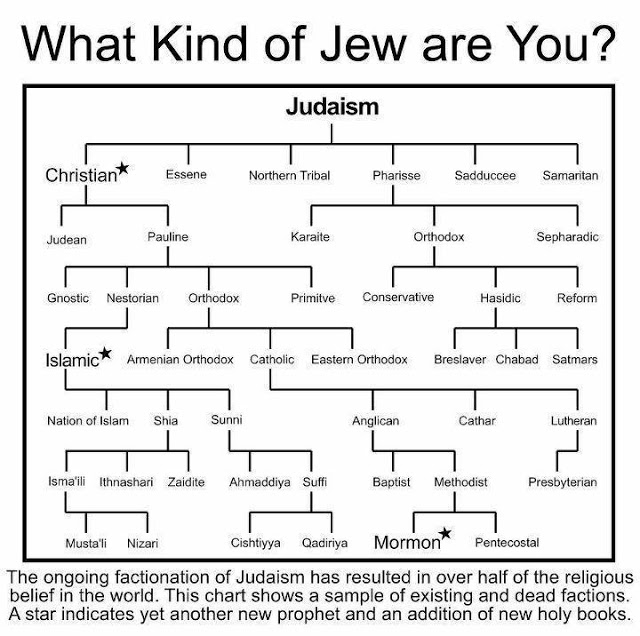
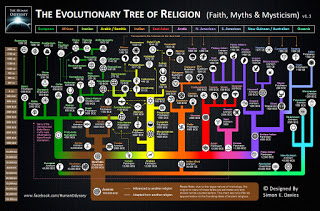
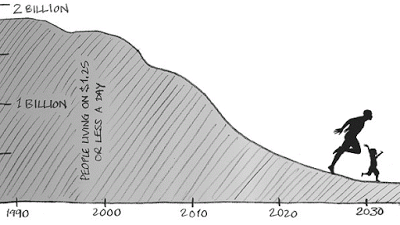





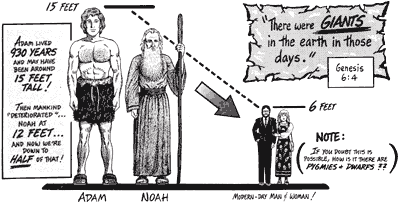
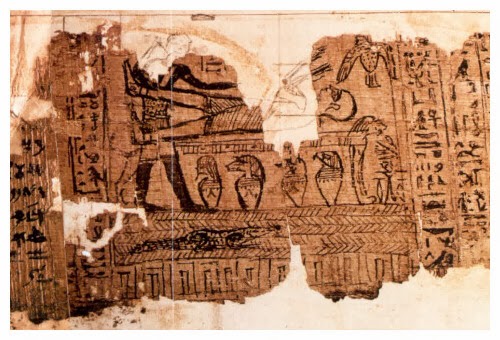
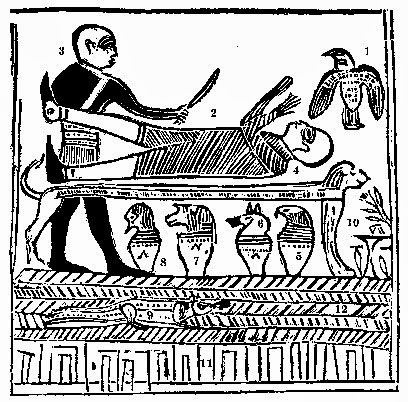
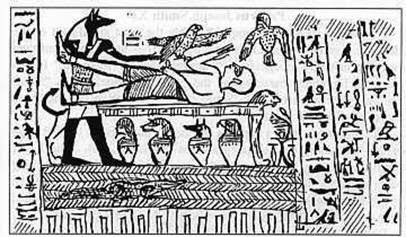
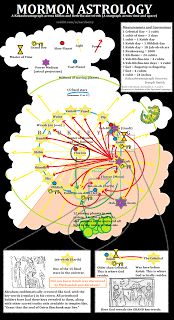
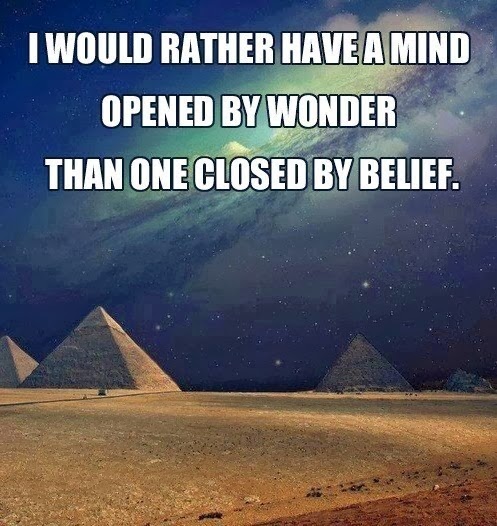
Recent Comments